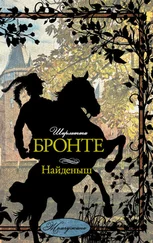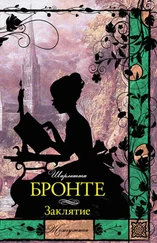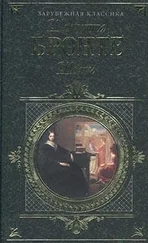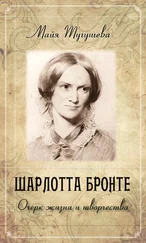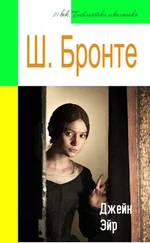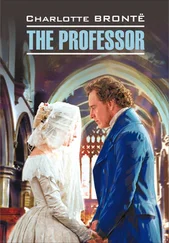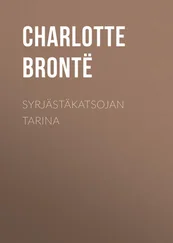Шарлотта Бронте - The Professor
Здесь есть возможность читать онлайн «Шарлотта Бронте - The Professor» — ознакомительный отрывок электронной книги совершенно бесплатно, а после прочтения отрывка купить полную версию. В некоторых случаях можно слушать аудио, скачать через торрент в формате fb2 и присутствует краткое содержание. Год выпуска: 2014, Издательство: epubBooks Classics, Жанр: Классическая проза, на английском языке. Описание произведения, (предисловие) а так же отзывы посетителей доступны на портале библиотеки ЛибКат.
- Название:The Professor
- Автор:
- Издательство:epubBooks Classics
- Жанр:
- Год:2014
- ISBN:нет данных
- Рейтинг книги:3 / 5. Голосов: 1
-
Избранное:Добавить в избранное
- Отзывы:
-
Ваша оценка:
- 60
- 1
- 2
- 3
- 4
- 5
The Professor: краткое содержание, описание и аннотация
Предлагаем к чтению аннотацию, описание, краткое содержание или предисловие (зависит от того, что написал сам автор книги «The Professor»). Если вы не нашли необходимую информацию о книге — напишите в комментариях, мы постараемся отыскать её.
The Professor — читать онлайн ознакомительный отрывок
Ниже представлен текст книги, разбитый по страницам. Система сохранения места последней прочитанной страницы, позволяет с удобством читать онлайн бесплатно книгу «The Professor», без необходимости каждый раз заново искать на чём Вы остановились. Поставьте закладку, и сможете в любой момент перейти на страницу, на которой закончили чтение.
Интервал:
Закладка:
The first picture is a full length of Aurelia Koslow, a German fraulein, or rather a half–breed between German and Russian. She is eighteen years of age, and has been sent to Brussels to finish her education; she is of middle size, stiffly made, body long, legs short, bust much developed but not compactly moulded, waist disproportionately compressed by an inhumanly braced corset, dress carefully arranged, large feet tortured into small bottines, head small, hair smoothed, braided, oiled, and gummed to perfection; very low forehead, very diminutive and vindictive grey eyes, somewhat Tartar features, rather flat nose, rather high–cheek bones, yet the ensemble not positively ugly; tolerably good complexion. So much for person. As to mind, deplorably ignorant and ill–informed: incapable of writing or speaking correctly even German, her native tongue, a dunce in French, and her attempts at learning English a mere farce, yet she has been at school twelve years; but as she invariably gets her exercises, of every description, done by a fellow pupil, and reads her lessons off a book concealed in her lap, it is not wonderful that her progress has been so snail–like. I do not know what Aurelia's daily habits of life are, because I have not the opportunity of observing her at all times; but from what I see of the state of her desk, books, and papers, I should say she is slovenly and even dirty; her outward dress, as I have said, is well attended to, but in passing behind her bench, I have remarked that her neck is gray for want of washing, and her hair, so glossy with gum and grease, is not such as one feels tempted to pass the hand over, much less to run the fingers through. Aurelia's conduct in class, at least when I am present, is something extraordinary, considered as an index of girlish innocence. The moment I enter the room, she nudges her next neighbour and indulges in a half–suppressed laugh. As I take my seat on the estrade, she fixes her eye on me; she seems resolved to attract, and, if possible, monopolize my notice: to this end she launches at me all sorts of looks, languishing, provoking, leering, laughing. As I am found quite proof against this sort of artillery—for we scorn what, unasked, is lavishly offered—she has recourse to the expedient of making noises; sometimes she sighs, sometimes groans, sometimes utters inarticulate sounds, for which language has no name. If, in walking up the schoolroom, I pass near her, she puts out her foot that it may touch mine; if I do not happen to observe the manoeuvre, and my boot comes in contact with her brodequin, she affects to fall into convulsions of suppressed laughter; if I notice the snare and avoid it, she expresses her mortification in sullen muttering, where I hear myself abused in bad French, pronounced with an intolerable Low German accent.
Not far from Mdlle. Koslow sits another young lady by name Adele Dronsart: this is a Belgian, rather low of stature, in form heavy, with broad waist, short neck and limbs, good red and white complexion, features well chiselled and regular, well–cut eyes of a clear brown colour, light brown hair, good teeth, age not much above fifteen, but as full–grown as a stout young Englishwoman of twenty. This portrait gives the idea of a somewhat dumpy but good–looking damsel, does it not? Well, when I looked along the row of young heads, my eye generally stopped at this of Adele's; her gaze was ever waiting for mine, and it frequently succeeded in arresting it. She was an unnatural–looking being—so young, fresh, blooming, yet so Gorgon–like. Suspicion, sullen ill–temper were on her forehead, vicious propensities in her eye, envy and panther–like deceit about her mouth. In general she sat very still; her massive shape looked as if it could not bend much, nor did her large head—so broad at the base, so narrow towards the top—seem made to turn readily on her short neck. She had but two varieties of expression; the prevalent one a forbidding, dissatisfied scowl, varied sometimes by a most pernicious and perfidious smile. She was shunned by her fellow–pupils, for, bad as many of them were, few were as bad as she.
Aurelia and Adele were in the first division of the second class; the second division was headed by a pensionnaire named Juanna Trista. This girl was of mixed Belgian and Spanish origin; her Flemish mother was dead, her Catalonian father was a merchant residing in the ― Isles, where Juanna had been born and whence she was sent to Europe to be educated. I wonder that any one, looking at that girl's head and countenance, would have received her under their roof. She had precisely the same shape of skull as Pope Alexander the Sixth; her organs of benevolence, veneration, conscientiousness, adhesiveness, were singularly small, those of self–esteem, firmness, destructiveness, combativeness, preposterously large; her head sloped up in the penthouse shape, was contracted about the forehead, and prominent behind; she had rather good, though large and marked features; her temperament was fibrous and bilious, her complexion pale and dark, hair and eyes black, form angular and rigid but proportionate, age fifteen.
Juanna was not very thin, but she had a gaunt visage, and her "regard" was fierce and hungry; narrow as was her brow, it presented space enough for the legible graving of two words, Mutiny and Hate; in some one of her other lineaments I think the eye—cowardice had also its distinct cipher. Mdlle. Trista thought fit to trouble my first lessons with a coarse work–day sort of turbulence; she made noises with her mouth like a horse, she ejected her saliva, she uttered brutal expressions; behind and below her were seated a band of very vulgar, inferior–looking Flamandes, including two or three examples of that deformity of person and imbecility of intellect whose frequency in the Low Countries would seem to furnish proof that the climate is such as to induce degeneracy of the human mind and body; these, I soon found, were completely under her influence, and with their aid she got up and sustained a swinish tumult, which I was constrained at last to quell by ordering her and two of her tools to rise from their seats, and, having kept them standing five minutes, turning them bodily out of the schoolroom: the accomplices into a large place adjoining called the grands salle; the principal into a cabinet, of which I closed the door and pocketed the key. This judgment I executed in the presence of Mdlle. Reuter, who looked much aghast at beholding so decided a proceeding—the most severe that had ever been ventured on in her establishment. Her look of affright I answered with one of composure, and finally with a smile, which perhaps flattered, and certainly soothed her. Juanna Trista remained in Europe long enough to repay, by malevolence and ingratitude, all who had ever done her a good turn; and she then went to join her father in the― Isles, exulting in the thought that she should there have slaves, whom, as she said, she could kick and strike at will.
These three pictures are from the life. I possess others, as marked and as little agreeable, but I will spare my reader the exhibition of them.
Doubtless it will be thought that I ought now, by way of contrast, to show something charming; some gentle virgin head, circled with a halo, some sweet personification of innocence, clasping the dove of peace to her bosom. No: I saw nothing of the sort, and therefore cannot portray it. The pupil in the school possessing the happiest disposition was a young girl from the country, Louise Path; she was sufficiently benevolent and obliging, but not well taught nor well mannered; moreover, the plague–spot of dissimulation was in her also; honour and principle were unknown to her, she had scarcely heard their names. The least exceptionable pupil was the poor little Sylvie I have mentioned once before. Sylvie was gentle in manners, intelligent in mind; she was even sincere, as far as her religion would permit her to be so, but her physical organization was defective; weak health stunted her growth and chilled her spirits, and then, destined as she was for the cloister, her whole soul was warped to a conventual bias, and in the tame, trained subjection of her manner, one read that she had already prepared herself for her future course of life, by giving up her independence of thought and action into the hands of some despotic confessor. She permitted herself no original opinion, no preference of companion or employment; in everything she was guided by another. With a pale, passive, automaton air, she went about all day long doing what she was bid; never what she liked, or what, from innate conviction, she thought it right to do. The poor little future religieuse had been early taught to make the dictates of her own reason and conscience quite subordinate to the will of her spiritual director. She was the model pupil of Mdlle. Reuter's establishment; pale, blighted image, where life lingered feebly, but whence the soul had been conjured by Romish wizard–craft!
Читать дальшеИнтервал:
Закладка:
Похожие книги на «The Professor»
Представляем Вашему вниманию похожие книги на «The Professor» списком для выбора. Мы отобрали схожую по названию и смыслу литературу в надежде предоставить читателям больше вариантов отыскать новые, интересные, ещё непрочитанные произведения.
Обсуждение, отзывы о книге «The Professor» и просто собственные мнения читателей. Оставьте ваши комментарии, напишите, что Вы думаете о произведении, его смысле или главных героях. Укажите что конкретно понравилось, а что нет, и почему Вы так считаете.


